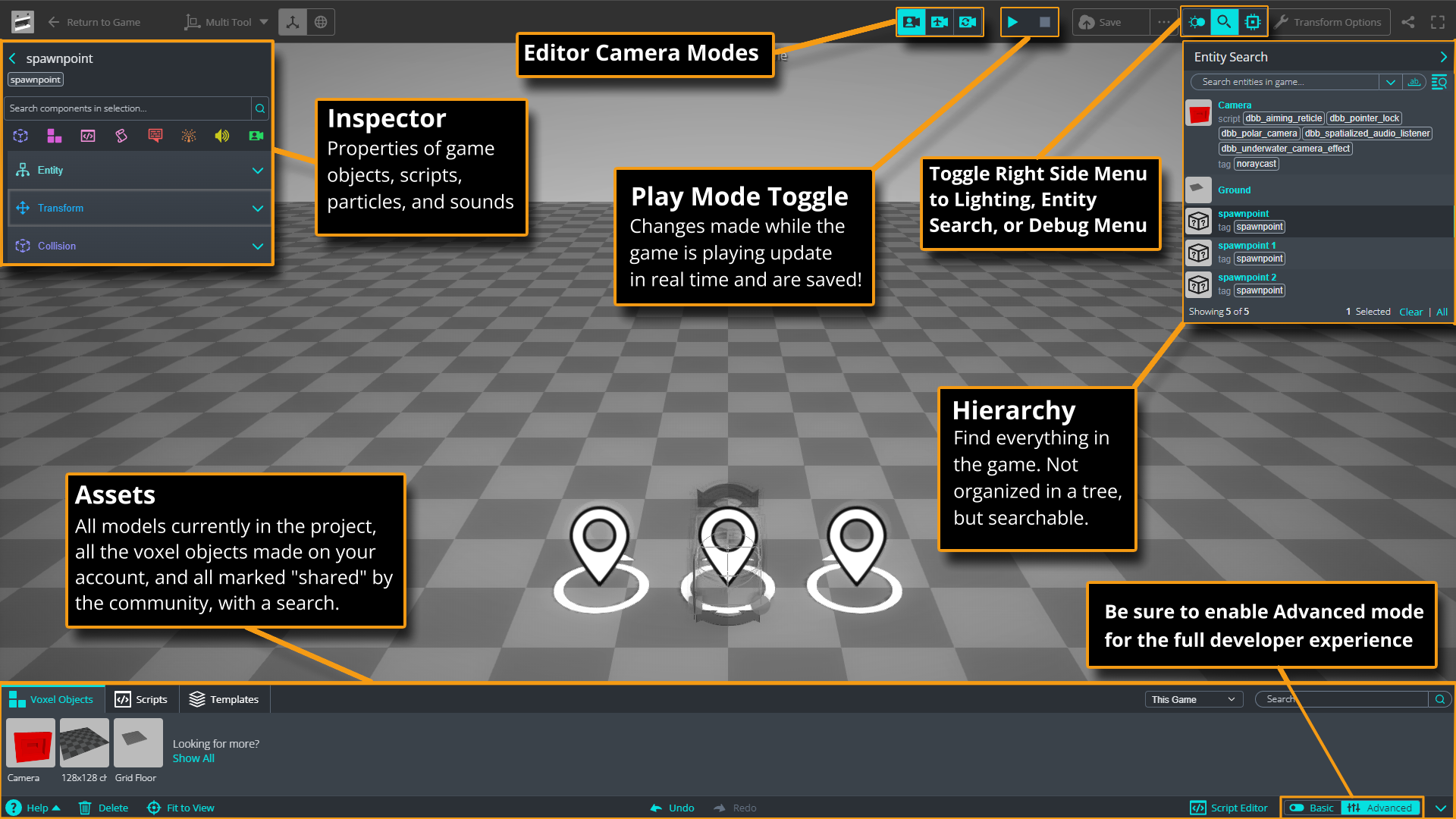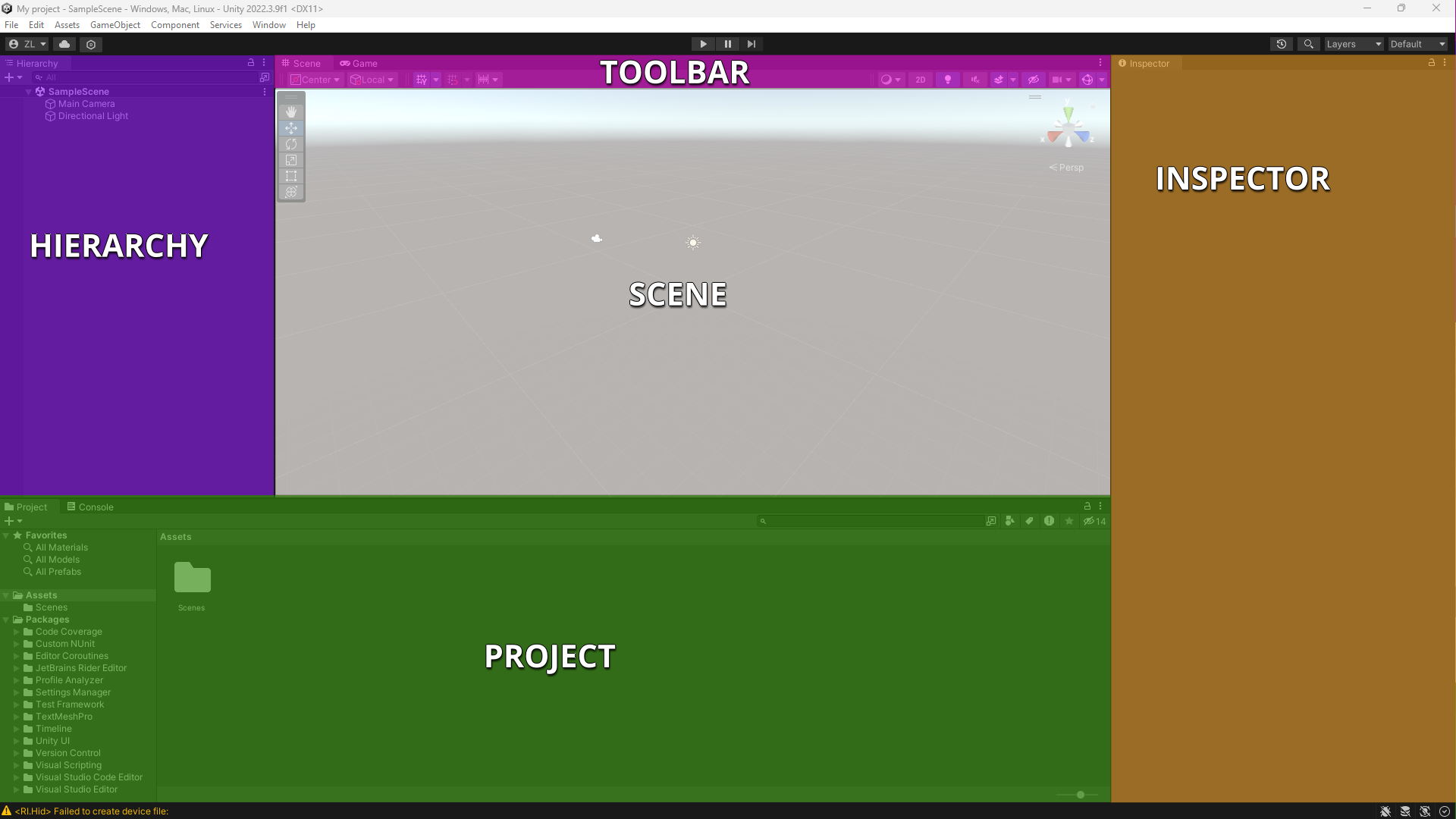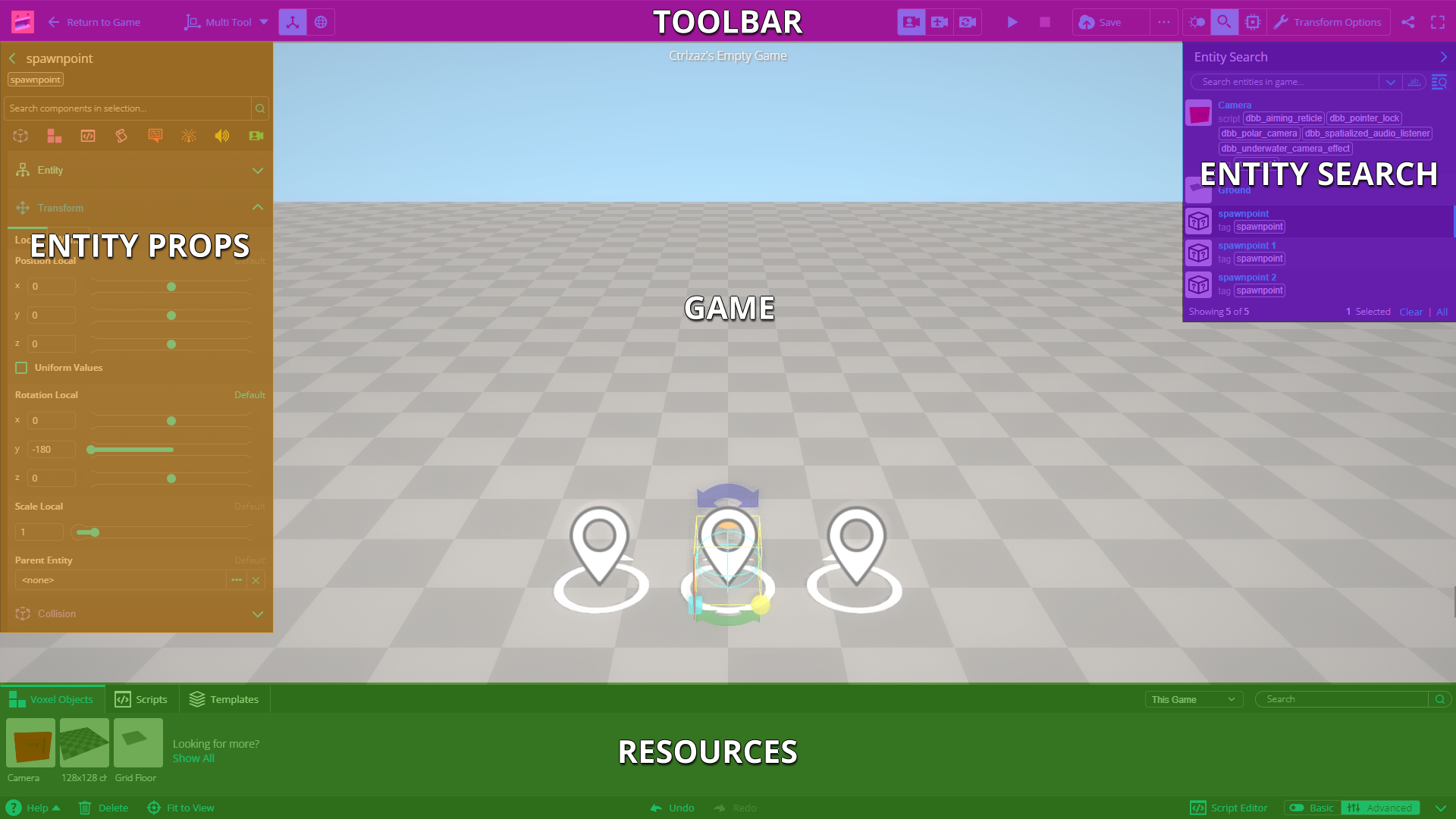dot big bang for Unity devs
Introduction
This guide is a quick start for game developers with experience in Unity to learn to create in dot big bang, the browser-based multiplayer platform that requires no installation for players or developers, enables real-time collaboration and development and allows you to develop for any platform that can run a browser!

About dot big bang
Welcome to dot big bang! Here are some essential characteristics of the platform:
- Web Based: Both the editing and playing environments are in browser. You can also install dot big bang, but players can jump instantly into your game from anywhere with just a URL.
- Voxel Objects: Create meshes in record-breaking time and transfer your existing voxel and pixel art skills using the Voxel Object Editor
- Multiplayer: You can start a multiplayer instance with a press of the button, and invite others to explore, test, and even help develop your game instantly.
- Realtime: Make changes on the fly and see the results right away to prototype and design with immediate and intuitive feedback!
- Shared: The dot big bang community has created a massive library of art, scripts, and games that are freely shared and can be used directly in new projects, or as a jumping-off point to create new things.
We're in Development!
There are many new features on the close horizon for dot big bang, including built-in version control and better tools for working with teams. We are excited to hear from you and your feedback will help us build the platform that best benefits game developers and players. We even have Community Engineers, Artists, and Designer(s) here to answer questions and forward feedback.
Join our Discord to chat with us!
Real Time Collaboration
Build in the Game Runtime
In dot big bang, there are no separate runtimes for the editor and the game. In most cases, you can see your changes you make right away, and there are no builds or delays in publishing, sharing or testing your work.
Multiplayer Editing
You and your collaborators can work together live on a project, with no one confined to working alone in a black box. You can see all changes together, and scripts and art will update across instances. You can have brainstorm sessions to prototype in real time and save your changes as a new project for posterity or experimentation in the future.
Resources are Shared Across Projects
Scripts, voxel objects, and templates are saved at the account level, so they can be accessed across all your projects. This means that you can edit templates in one staging project and they will update in your primary projects, which can be a useful workflow for collaboration.
Editor Correspondences Side-by-Side


Hierarchy, Prefabs, and GameObjects
Entities are the dot big bang equivalent of GameObjects, and every script, plus everything that is visible or audible in a dot big bang project is a component of an entity. See this video on Entities to learn more.
Entities can be parented to other entities, but are not displayed in a nested structure like the Hierarchy in Unity. Instead, they are all listed in the Entity Search, but can be filtered by name, tag, or component type.
To learn more about how dot big bang projects are structured, see How to Think in DBB.
Asset Library and Tools
The dot big bang community has created a library of freely shared voxel objects, scripts, and projects. We also have customizable frameworks to build games right away, made by the dot big bang developers. You can see everything available without downloading and unpacking anything.
Marketplace Coming!
While dot big bang does not yet have a peer to peer marketplace for creators, we have plans for one in the future and would love suggestions on how to make a marketplace best benefit developers on our platform.
Tools and Templates
Our system for sharing Templates the same way we can share scripts and voxel objects is still in the works, but it is still possible to build scripted entities and share them by putting them in a shared game. You can create your own templates from entities in a shared game to export useful systems from them.
UI and Animations
Creating 2D UI and accessing our library of skeletal animations is currently done by scripts, but we have templates that can let you implement these in your game without having to script them from scratch.
Programming in TypeScript
TypeScript allows same object oriented experience with clear error handling and helpful autocompletion that C# programmers are accustomed to, and the languages were designed by the same person. Similarly, public variables will be exposed in the Entity Props panel (equivalent to the Inspector), so that values can rapidly be tweaked from the UI.
Libraries are a planned feature that should bring an even more Object Oriented feel to development in dot big bang, but currently scripts can interact by sending events to each other. You can find a clear, minimal example of this in our Intro to Magic Example Project.
See the dot big bang API documentation and our scripting examples to learn more.